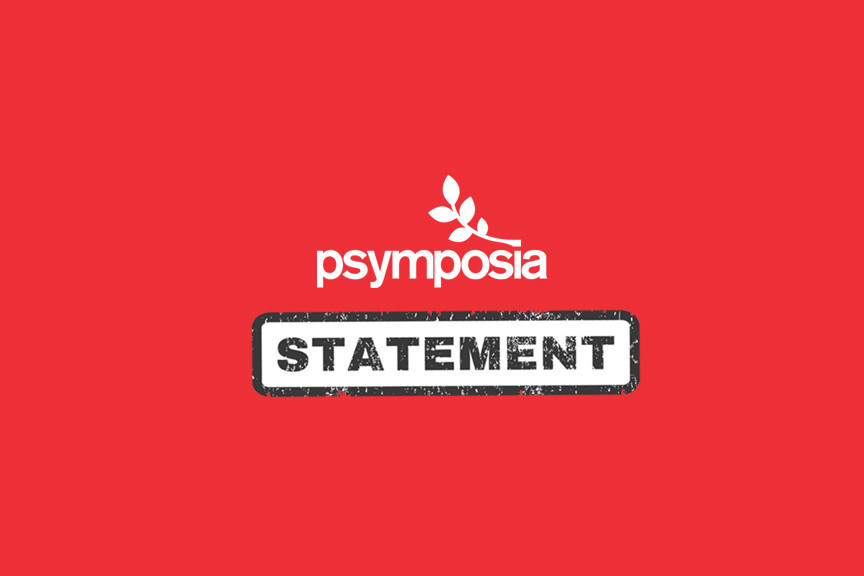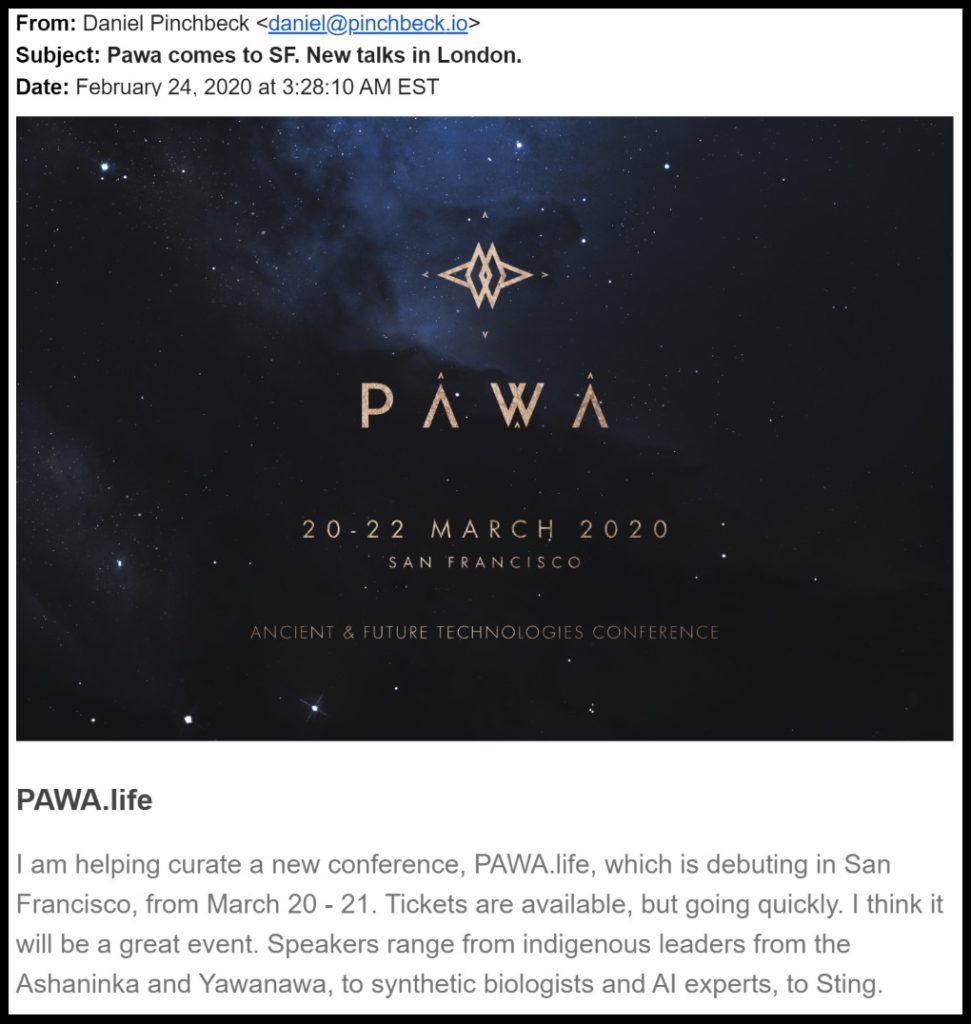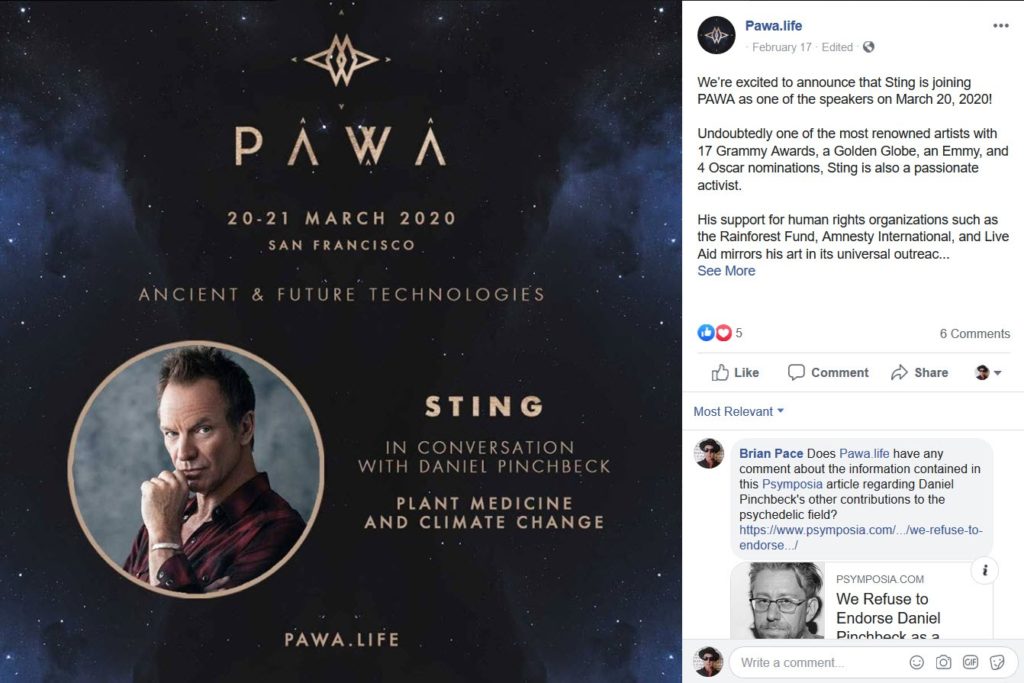A Statement Regarding “The Emergence of a New Market: Psychedelic Science Conferences”
Our statement on a recent Chacruna article by Dr. Bia Labate.

Psymposia is a 501(c)(3) nonprofit research and media organization that offers critical perspectives on drugs, politics, and culture. We rely on contributions from our readers and listeners. Your support is vital to sustaining Psymposia.
Support Psymposia’s independent journalism on Patreon and help us drive the Mystery Machine! We’re a bunch of meddling kids who are unmasking the latest shenanigans on the psychedelics beat.
We applaud Dr. Bia Labate for recognizing and informing the community about the conflicts of interest and ethical considerations psychedelic researchers and advocates face, given the ongoing commodification of psychedelic science, spaces, and communities. She raises good points, many of which echo those raised in our Psymposia article, “This is what psychedelic mainstreaming looks like…in Arizona.”
Increasingly, in an effort to woo investors, boost revenue, and sell tickets, pharmaceutical companies, therapy/retreat centers, and conferences are looking to gain credibility and public acceptance. One common marketing approach consists of cozying up to well-known and respected figures for inclusion on websites, advisory boards, and public events, in order to create a perception of legitimacy.
In fact, these are some of the very issues that Bob Jesse and others foresaw and attempted to address in 2017 with the release of the Statement on Open Science and Open Praxis with psilocybin, MDMA, and similar substances, to which Psymposia was an early signer.
Given Dr. Labate’s stance on participation as a form of implicit promotion, we can only understand her decision to speak at—and Chacruna’s decision to partner with—the upcoming PAWA conference in San Francisco to reflect tacit approval of admitted serial sexual predator Daniel Pinchbeck’s continuing presence in the field. This association strikes a particularly discordant note in light of Chacruna’s stated commitment to centering indigenous voices in psychedelic conversations and the years Pinchbeck spent publicly ruminating on his self-identification as an Aztec god.1 Further, Pinchbeck has announced his role in organizing PAWA speakers for topics on “reintegrat[ing] ancient and indigenous knowledge into our modern civilization.”

While we have significant doubts that PAWA measures up against the list of questions2 Dr. Labate raised, we will leave it to her to explain her decision to participate in this event.
In our February 2019 story, “This is what psychedelic mainstreaming looks like…in Arizona,” we asked paid keynote speaker Dr. Labate to comment on conference sponsors (initially billed as part of the organizing team) who were promoting scientifically inaccurate and dangerous claims about ayahuasca. When asked about their claim that “half a gallon [of ayahuasca]” presents a “toxicity…on par with water,” Dr. Labate replied, “I do not see a huge problem with this site at all. Unfortunately I have seen a million times worse in the ayahuasca universe out there!”
As we noted in that story, “When psychedelic events are sponsored by people or groups that disseminate misinformation, it presents an inherent conflict of interest between harm reduction and self-promotion.” Indeed, as Dr. Labate noted in her recent statement, psychedelic communities must exercise due diligence, discernment, and accountability with regards to which organizations and individuals they choose to highlight.
This is especially true as long-standing psychedelic figures face increasing temptation from new, corporate actors to act in self-interested ways and place personal benefits above serving their communities.

Footnotes
1.) Selected quotes from Daniel Pinchbeck’s book, 2012 The Return of Quetzalcoatl, on his purported incarnation as Quetzalcoatl:
“I am the same spirit who appeared here, in the Mayan period, as Quetzalcoatl and incarnated at various other points in human history.”
“I began to consider how I, as the vehicle of Quetzalcoatl’s return, would establish colleges of sacred practices for exploring the proper use of ayahuasca, this shamanic technology for transforming reality, this archaic antidote for the sick modern soul.”
“The writer of this work is the vehicle of my arrival—my return—to this realm. He certainly did not expect this to be the case.”
2.) Dr. Labate’s list of questions for assessing the merits of psychedelic conferences:
- Is this the first edition of the conference, or has it been in the field for a while?
- Is there inclusion, diversity, and gender balance, or is it heavily dominated by white males?
- Is there a sliding-scale system and scholarships or only one price?
- Does the price seem reasonable in comparison to other conferences in the field? (for example: $1,000 is a lot for a two-day conference!)
- Does the conference have a program for volunteers?
- Who are the organizers of the conference? Are their photos and bios displayed online? Is it an individual or a business? Often conferences that are strictly commercial do not offer information about who the organizers are.
- Even if the organizers are displayed, do they have ties to the community? Do they have any particular intellectual expertise or contribution to the field?
- What is the intellectual vision of the conference? Is there a theme, a specific identity or approach, or it is a random mish-mash?
- Beyond the flashy images and promotion, what is the intellectual quality of the conference? Are the biographies of speakers carefully edited and presented, and are titles and abstracts to their presentations offered?
- Are the invited or guest speakers’ traveling expenses covered?
- Are academic researchers included, or just mainstream psychedelic corporations or celebrities?
- Are their community partners or promotional partners that are solid and recognized in the field?
- Does the conference seem like a trade show for businesspeople?
- Does the vendor’s area receive more attention than the conference itself?
- Is there an afterparty that seems mainly a money-generating event?
- Are the videos of the conference shared for free online afterward?
- Who are the sponsors of the conference? Are these legitimate players in the field?
- How much do the packages to sponsor cost? Are these numbers reasonable compared to other initiatives in the field (numbers range from $5,000 to $10,000 depending on the size of the conference).
- If the conference is strictly business oriented, does it offer any kind of reciprocity to the field?
- What is the quality of the speakers? Do they have real expertise or are they being included because they are promoting similar conferences that perhaps offer cross-promotional benefits?
- Are speakers pushing too hard to present in your conference?
- Are continuing education credits offered?
- Are community and promotional partners offered a courtesy ticket?
Hey! Before you go… Psymposia is a 501(c)(3) non-profit media organization that offers critical perspectives on drugs, politics, and culture. We strive to ask challenging questions, and we’re committed to independent reporting, critical analysis, and holding those who wield power accountable.
Our perspectives are informed by critical analysis of the systemic crises of capitalism that have directly contributed to the unmitigated growth of addiction, depression, suicide, and the unraveling of our social relations. The same economic elite and powerful corporate interests who have profited from causing these problems are now proposing “solutions”—solutions which both line their pockets and mask the necessity of structural change.
In order for us to keep unpacking these issues and informing our audience, we need your continuing support. You can sustain Psymposia by becoming a supporter for as little as $2 a month.
Plus Three
The Plus Three podcast is Psymposia co-founder Brian Normand, Medicine, Society and Culture Editor, Nese Devenot, Politics and Ecology Editor, Brian Pace, and Managing Editor, David Nickles. Plus Three goes deep into the world of drugs, from local decriminalization and emerging psychedelic corporations to leftist politics and mass incarceration. Each week the team and guests attempt to make sense of the complex connections between drugs, science, capitalism, policy, and culture.





